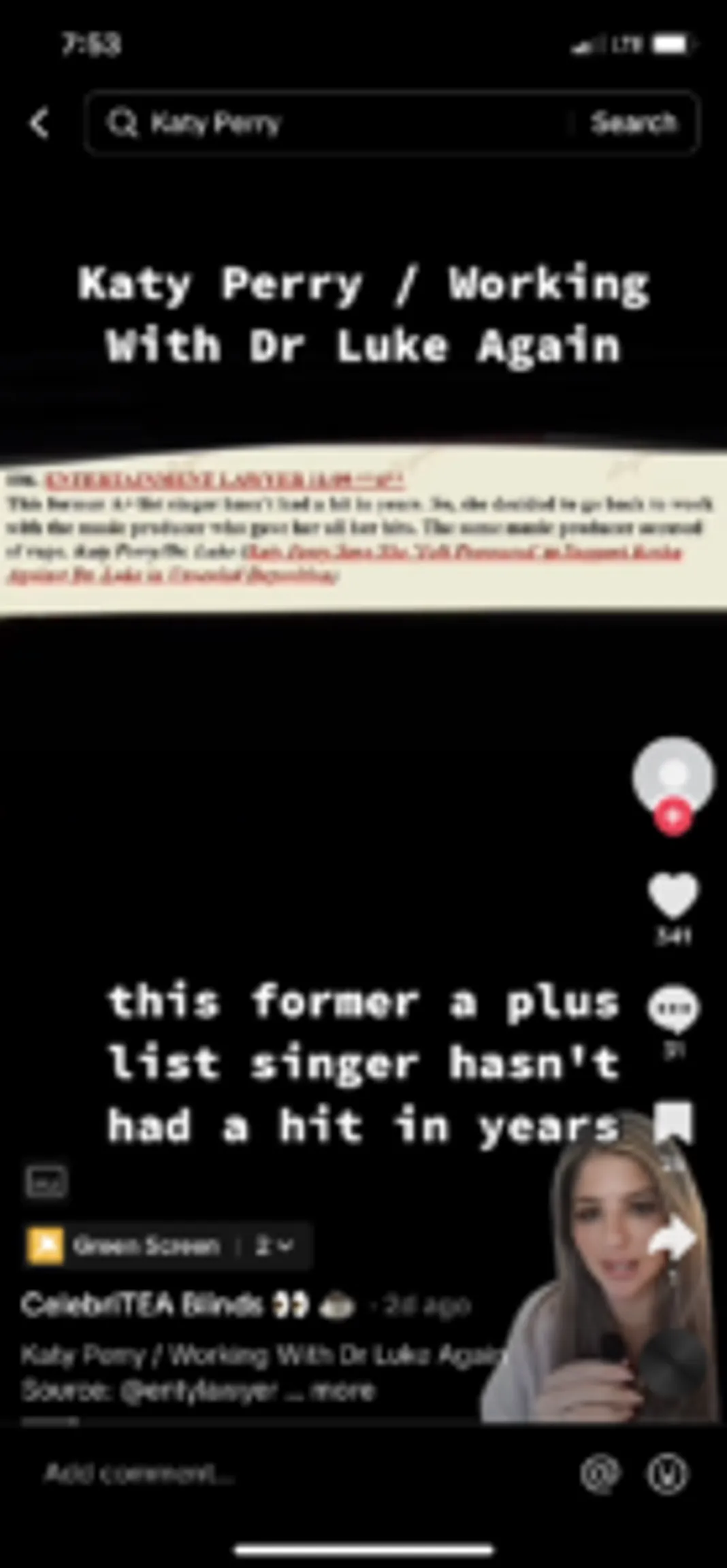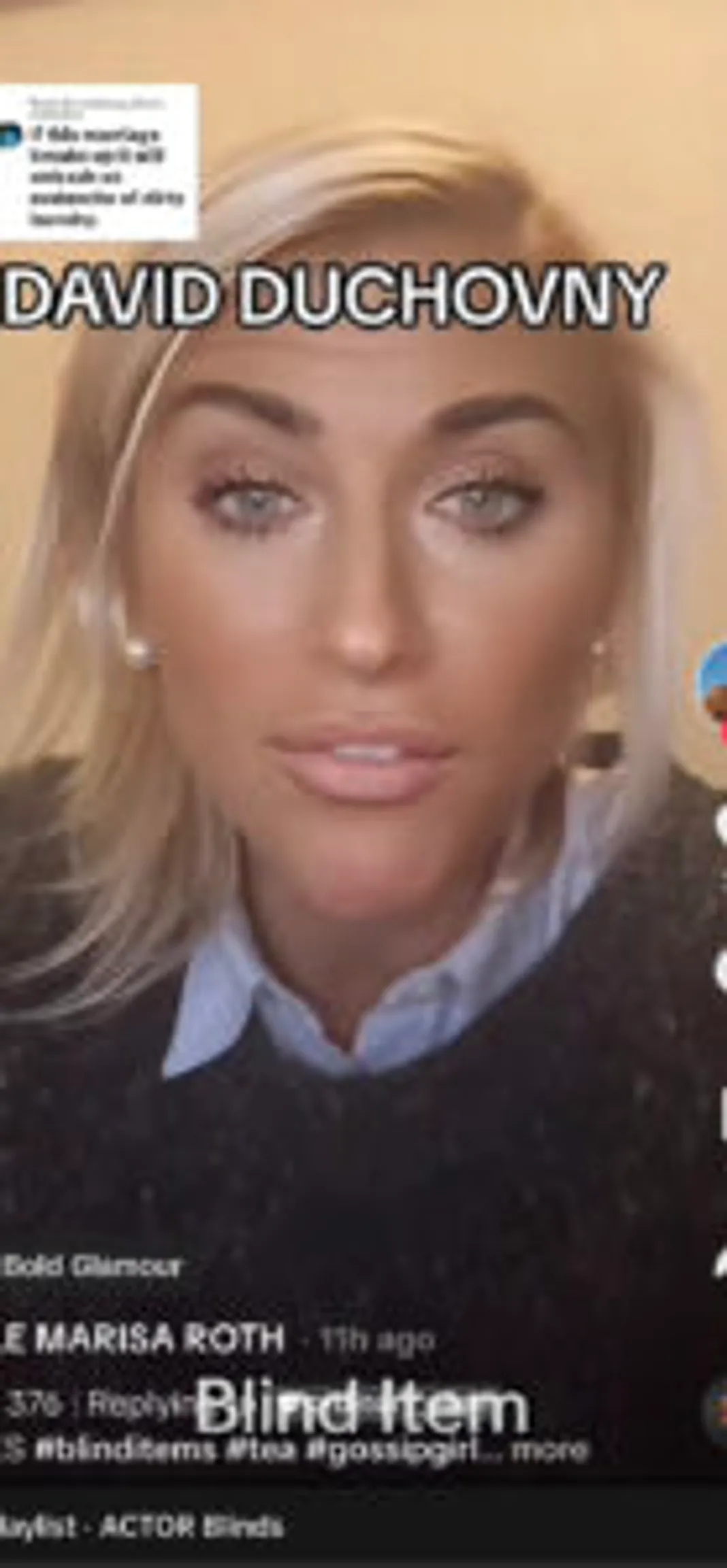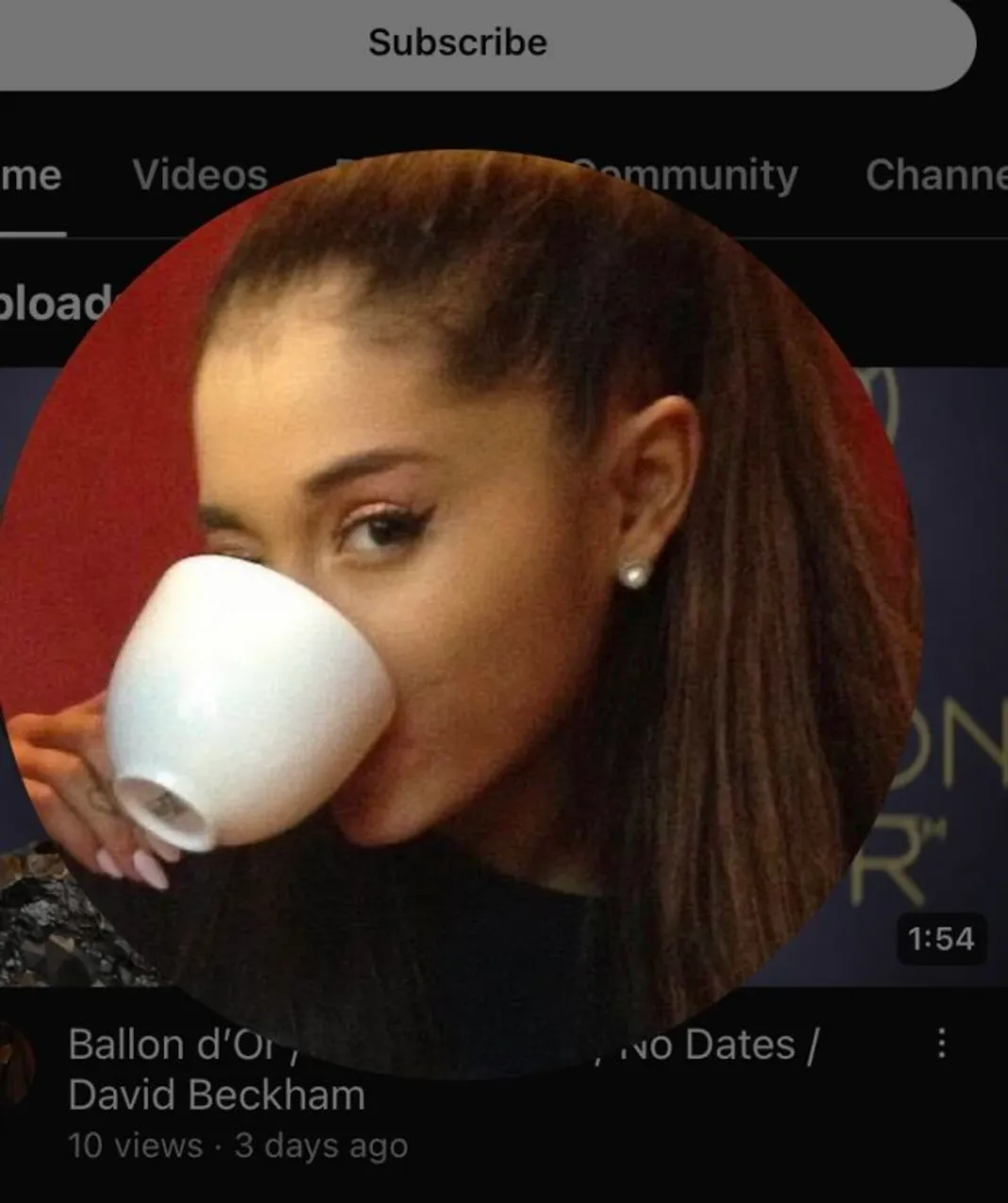By Dalia Abdelwahab
Gossip is a tale, one might say, as old as time — or at least dating back to the very convulsion of humanity’s origin, with the earliest documented instances of gossip being drafted and preserved in written form (presumably for the purposes of blackmailing its subjects) traceable to the life and times of William D’Alton Mann, who lived between Ohio, New York, and New Jersey from 1839 into the early 1900s.
D’Alton Mann’s gossip tidbits, which he primarily published in New York City-based magazine Town Topics: The Journal of Society, were dubbed “blind pieces” — a reference to his sneaky dances around potential legal liability for defamation or slander by way of withholding the names of those involved. And while D’Alton Mann and his appetite for salacious innuendo did not stand the test of time (mainly due to his status as a mortal human being), the very human nature of yearning to be looped in on the latest gossip, and an ever-so-evolving need to evade courthouse visits did–albeit with his “blind pieces” now dubbed “blind items.” The practice, in fact, is growing and healthy, as a succinct look across TikTok’s Blind Items community would reveal to Hollywood.com.
“I guess there’s two ways of looking at it,” says Jamie Cohen, assistant professor at the City University of New York’s Queens College. “One is that TikTok is nothing new. A lot of this comes from the culture of ‘tea’ YouTube — it’s just a lot of the tea channels that really tried to give some of the celebrity gossip from the micro-niche. But I think a lot of the blind items go all the way back to the tabloid era … {T}his has a lot to do with the attention economy that’s necessary on TikTok. It’s less about the excitement of the blind item and more about the idea of the person who reports the blind item trying to stay on top of their feeds.”
Cohen’s studies in media literacy focus on topics like memes and internet culture, including subcultures as niche as fandoms formed on websites like TikTok, YouTube, or Instagram.
“Every blind item reporter has their own little audience,” he says.
Among those is a woman who has declined to give Hollywood.com her real name out of privacy concerns, but goes by the handle CelebriTEABlinds on TikTok. The format of her content is pretty straightforward: She reads blind items published on Crazy Days and Nights, a website founded in 2006 whose anonymous owner and administrator claims to be an entertainment lawyer. More specifically, the blind items she features on her page are ones that have been “revealed” by the Crazy Days and Nights administrator and have the names of the alleged subjects attached to them.
The uninviting layout of Crazy Days and Nights, the CelebriTEABlinds creator says, was one of the driving forces behind launching her TikTok page.
“The website is not very user-friendly or reader-friendly,” she explains. “It literally looks like it’s from 1997. It’s covered in pop-up ads, and {the website administrator} posts the blinds in a kind of way that can be confusing. He also doesn’t regularly post to social media.”
But out of all the content that CelebriTEABlinds posts, one series in particular has earned her a more loyal following: Celebrity deep dives. For those, she scouts Crazy Days and Nights to comb through all the blind items that have been posted about a given celebrity for the entirety of their career or, in the case of celebrities whose careers spawn more than a decade, throughout the past 10 to 15 years.
“I decided to do deep dives because you can really see a story {from what goes on with it} over time,” she says, adding that part of the appeal her deep dives have to her followers is that it’s relatively easy to compare and contrast the content of the blind item — alleged though it might be — with whatever news tabloid rumors were circulating about those celebrities over that extended time period.
Although blind items are nothing new when it comes to celebrities, public figures, and politicians, the tabloid DeuxMoi helped boost the phrase into the public vernacular as it transitioned from a celebrity fashion blog to a celebrity gossip blog during the COVID-19 lockdowns. And perhaps in line with Cohen’s theories about influencer fan subcultures equalling or exceeding the proportions of their more “traditional” tea channel counterparts, blind item TikTokers have themselves become the subjects of blind items … one of which was erroneously assumed to be about CelebriTEABlinds.
“Enty Lawyer {the pseudonym the Crazy Days and Nights website administrator is better known by} DM’d me to let me know that the blind item wasn’t about me,” she shares. “Of course, because the blind item read ‘this TikToker who only records from her bed,’ I knew it wasn’t about me anyway.”
Enty Lawyer has notoriously been secretive about his identity, only choosing to speak on the record on his own Patreon-crowdfunded podcast, along with occasional appearances on the DeuxMoi-founded podcast Deux/U. CelebriTEABlinds’ exchange with him marks a rarity, but she’s right in one respect: The blind item that led to the kerfuffle was not about her. It was actually about Maryland-based TikTok creator Kyle Marisa Roth, who maintains (and embraces) that she was flattered by it.
“It’s not that serious. It was never that serious,” Roth tells Hollywood.com. “But the fact that there’s a blind item about me means that I made it. Let’s give them something to talk about. I’m a woman, okay? I’m a woman with blonde hair, and I’m a woman that exists in America. People have always talked about me. People will always talk about me. That’s what it’s like being just a woman that exists in America.”
Below: Tiktok’s CelebriTEABlinds.

At least one additional blind item, Roth says, has surfaced about her. Meanwhile, blind items allegedly discussing other blind item aggregators are also working their way across Crazy Days and Nights and similar gossip hotbeds. To Roth and the rest of the blind item readers-turned-subjects, becoming part of this tattling daisy-chain is just an indication of their success.
“I’d tell my friends or my family,” she explains, “And they’d be like, ‘Oh my gosh, that’s hilarious. You’ve made it.’ There are celebrities that I like a lot, whether they’re actors or actresses or they’re comedians or they’re musicians, and they get sh–y blind items written about them. But that doesn’t change the way I feel about them. At the end of the day, people are going to talk about you regardless of what you do. I just think it’s cooler that it was immortalized for history in a blind item that exists on the internet forever.”
As a cultural observer, Cohen will tell you Roth’s sentiment isn’t necessarily just shared by the celebrities who frequently make the rounds. If anything, blind items can be another cog in the public relations (PR) machine.
“A lot of these … are designed specifically to reveal later so that the news cycle runs their course,” he says. “This is part of the PR plan. A plan which is like, let this information come out a little bit, so then it later comes out in full.”
If Cohen’s theory is true, the reactions both Roth and CelebriTEABlinds get on their content could indicate the idea is working.
“I would say the majority of my followers are just like me and are interested in celebrities and pop culture,” CelebriTEABlinds says. “{T}hey’ve seen the blind items come true, and now they’re hooked.”
Some, she’s noticed, are obsessive celebrity stans who are stunned and upset by inferences of their idols being engaged in any wrongdoing or unsavory behavior. “People who are new to blind items, who may have never heard of this type of information before, they just can’t believe it. They can’t fathom that some of this stuff might actually be true. And other people are diehard fans that will defend a celebrity at any cost despite evidence leading to the blind item potentially being true,” she explains.
Blind item TikTokers can themselves become targets of fan criticism. CelebriTEABlinds once found herself on the receiving end for her now-abandoned practice of bowdlerizing certain words in “algospeak.” She asserts this was done to avoid demonetization or censorship by the TikTok app.
“We block out the ‘R’ word {rape/rapist} on TikTok, and, for a while, I was saying ‘grape-ist’ instead because I had seen other TikTok creators do that,” she says. “And then some people said that was insensitive, which I totally understand. So, then I just started saying the ‘’R’ word’.”
For Roth the criticism barreled up at her from the irate subject of a blind item–and it wasn’t restricted to the comments section on her TikTok videos.
 Above: TikToker Kyle Marisa Roth dishing to her 500K+ followers.
Above: TikToker Kyle Marisa Roth dishing to her 500K+ followers.
“This reality star was fully aware that I was reading a blind item out of a third-party website,” she says, “And they {still} came and attacked me. They threatened my family members, they threatened my dog, they threatened me.”
Roth adds that some of the threats were transphobic in nature due to her overtly masculine first name- Kyle–despite being a cisgender woman.
“I’ve never had a violent experience like that, and that was terrifying,” she recalls. “But it was also terrifying because my entire family was threatened, and they never asked to be a part of it, and it caused division among my family. It strained my interpersonal relationships with my family.”
Because Roth declines to name or identify the reality star she mentions, Hollywood.com isn’t able to independently verify Roth’s claims. She does, however, say that the attacks were a “learning moment,” and that she has a supportive core fanbase despite it all.
“Honestly, I call {my followers} my besties,” she says. “ … I know there’s this big thing about parasocial relationships. But I’m not one of those male celebrities that try to f—k their followers or their fans, whatever it is, so I’m not worried about that. I just really love the way that we bounce ideas off each other.”
With such a devoted fanbase, Roth views her logical next step as starting her own Patreon crowdfunding campaign to fund the curation and moderation of a more “safeguarded” community in which she and her followers can discuss pop culture goings-on with greater ease. CelebriTEABlinds has gotten similar fan requests for a Patreon crowdfunding project or podcast, although she ultimately decided against it out of respect for Enty Lawyer.
“I don’t feel right about starting a podcast when {he} has a Patreon podcast that you can pay for and listen to,” CelebriTEABlinds states. “And his … is great.”
However, CelebriTEABlinds hasn’t ruled out other plans for monetizing her blind item-reading career, especially, she says, in light of recent issues that she and other TikTok creators have faced with the platform’s controversial Creator Fund program.
“Right now, I’m looking into other platforms for sure,” she explains, “And I am working on making some fun merch for my followers. You know, there’s just some cheeky nicknames for celebrities that everyone thinks is {sic} hilarious, along with some fun little sayings.”
The nicknames — a staple of Crazy Days and Nights jargon — include notable examples like “Frozen Flavor[ing]” and “The Meme Actor”, along with what may well be the most meta handle of all:
“Flowery Financial Institution.”
Dalia Abdelwahab is a music, entertainment and culture journalist based in the NYC Metropolitan Area. Her reporting focuses on identifying the intersections between how entertainment is produced and perceived in all its forms, and the state of our society and culture at every given moment. She also has experience with covering national news and foreign affairs.


